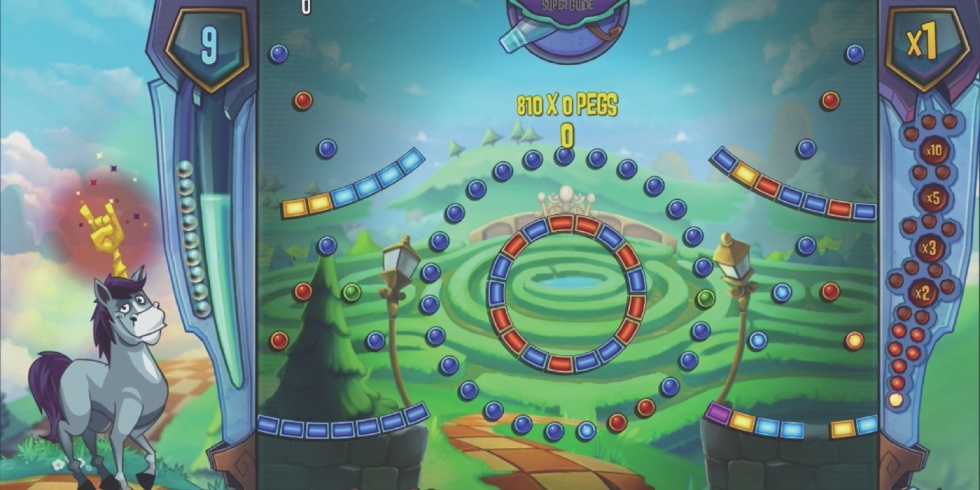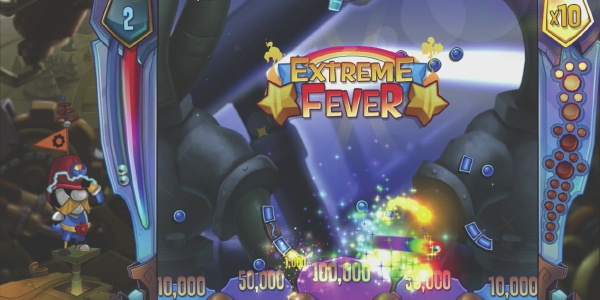A common practice for games composers today is to compose and arrange fully mixed music cues in Pro Tools or Logic, then have an implementation specialist drop those files into the game. Music integration, in this case, is seen as a basic technical task. But to score a game with greater nuance, the composer would want to see the title in action while composing and arranging, working in a digital audio workstation (DAW) that includes robust adaptive features. This new DAW exists; it is your game audio engine and its authoring tools. In this scenario, music integration is a highly creative endeavour, where music arranging, mixing, mastering, and even composing takes place. Peggle 2 utilised Audiokinetic’s Wwise audio engine, which became the final stage DAW in the music production pipeline.

STARTING IN A TRADITIONAL LINEAR DAW
Working with captured gameplay video in your linear DAW of choice is a great way to develop thematic ideas and music design concepts. The results of this are two-fold; the first are audio-video demos that demonstrate music design concepts, and aesthetic direction. It was this type that sold the first music and design concepts to the Peggle 2 team.
Second are the individual audio assets. Rather than creating fully mixed music cues, Peggle 2’s music was broken down into individual instrument stems, short musical phrases, and single notes. The criteria for how short or long a phrase or part should be was determined by how flexible it needed to be for the design and score to work. Smaller shorter elements are by nature more flexible than longer pre-mixed elements. My motto here is to make your music elements as small as you need them to be in order to adapt and work within your design, and no smaller.

MUSIC ARRANGING IN A NON-LINEAR DAW
While figuring out the Peggle 2 music production pipeline, it became clear that the game audio authoring tool – Audiokinetic’s Wwise – is also a very powerful music mixing and arranging tool. I thought of Wwise more as a full featured, non-linear audio workstation, with much of the same traditional functionality as a linear DAW, plus non-linear organisation, functionality, and logic.
After importing individual music assets into Wwise, they can be arranged within multi-track segments. Each track within a segment contains an instrument’s samples and phrases, which can be easily edited. In this way I reconstructed the multi-track arrangements from the wave elements.
From there, I can create variations in any given instrument track. These segments can flow from one to another seamlessly and musically, and like the wave elements, are made as short or as long as necessary. This approach also allowed me to react quickly to changes in the game design or visual timing.
Once the temporary orchestral assets were finalised in Pro Tools, the process to record live orchestral elements began. In the studio, we most often recorded each instrument section separately so that each element could be easily edited. Rough stems from the sessions were brought into Pro Tools for editing and subtle mastering. The new, live orchestral elements then replaced the temporary ones in the Wwise project.
REAL-TIME CONTEXTUAL MIXING
After the ‘music hooks’ between the game engine and audio engine are integrated (via events, states, and parameters), the score can be mastered in real-time within the game.
While playing the game, not only am I making sure the music is working correctly, I’m balancing instrument volumes, adding real-time DSP, and surround panning. Effect sends on each track allow me to mix various amounts of real-time reverb or delay to each instrument, all in the context of the game’s visuals and sound effects. This allowed music and SFX to play well together and give each other space.
The term ’scoring’ includes the notion that music is synchronised in a purposeful way, with the visual elements of a game. And the only way to accomplish that is with a non-linear DAW that is working in tandem with the game engine. To that end, 50 per cent of Peggle 2’s music production happened within Wwise. And I only see that percentage growing as these powerful new DAWs evolve.
This article was originally published on Develop, on September 11th 2014


Comments